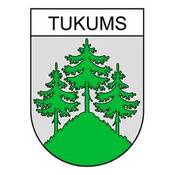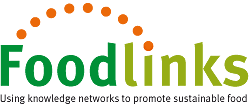Prof. Dr. Talis Tisenkopfs
Baltic Studies Centre
Kokneses prospects 26-2
Riga LV-1014
Latvia
Tel.: +371 2941 7173
Fax: +371 6747 0244
E-Mail: ![]() talis.tisenkopfs(at)lu.lv
talis.tisenkopfs(at)lu.lv
Urban food strategies
Tukums Urban Food Strategy, Latvia

- Country: Lativa
- Foodlinks theme: Urban Food Strategies
- Year started: 2011
Targets & measures
The strategic objectives of the Urban Food Strategy of the city of Tukums are being identified in stakeholder consultations and they include:
- Public, especially education for children about healthy food,
- Healthy and sustainable food at kindergartens, schools, hospitals and care houses,
- Local sourcing / facilitating procurement from local producers,
- Availability of locally produced products and ensured proof of origin.
Although the objectives are not yet fully decided and an action plan is not yet designed, there are already elements of a sustainable local food system and activities that the forthcoming strategy could embrace, for example:
- Vegetable gardens at kindergartens: Children at the kindergarten „Zemenite“ in Pure (part of Tukums) are taught how to grow vegetables in their small garden, plant seeds, observe growing, harvest and taste fruit, thus learning how food is grown and what are its qualities. This practice can be shared in other kindergartens and schools in Tukums.
- School Fruit: Children are given locally grown fruit four days a week. Local cooperatives supply the fruit.
- Smart procurement: Thoroughly thought procurement at Tukums hospital to ensure fresh, healthy and local products for hospital meals.
- Involving seniors and juniors in gardening: Residents of retirement home in Slampe village grow vegetables in the home’s garden, and it is often visited by school children for special activities. Children learn simple gardening practices in an experiential play form. A committed teacher brings seniors and juniors together. This practice improves also social integration of the residents of the retirement home.
During the stakeholder consultations, certain activities have been suggested for inclusion in Tukums FS , for example:
- Improvement of municipal procurement procedures in order to source more food locally,
- Support organic farmers by reducing trade permission costs at public events and open markets,
- Allocate territories for family gardens in territorial planning,
- Develop educational materials about healthy food for children,
- Organise educational activities (e.g. healthy food week in schools).
Interaction and knowledge brokering activities
An initiative group consisting of a few persons from the Tukums municipality and the Baltic Studies Centre is involved in the Foodlinks project. These two groups initiated the Tukums Food Strategy. During public consultations more actors were involved: the Tukums municipality council; school directors and teachers; kindergartens; school catering enterprises; hospitals; the Ministry of Health (Department of Public Health); the Tukums Department of Education; the Tukums newspaper; local food processing companies. The process was started in a rather “top-down” manner, therefore the question how to involve the wider public was very important. Stakeholder involvement is crucial when it comes to definition of the strategy and objectives, and answers to particular questions, e.g.: “What food we want to serve at schools?” So far public discussions centre on issues like “public health” and “local products” and “public procurement” as an instrument to reach objectives.
The consultation process and stakeholder collaboration are still at the beginning phase. The next knowledge brokerage activities would be spreading of information in local media, telling food strategies examples from other cities and learning from them, mobilising political support and getting other municipal departments involved in strategy development. There is a lot of potential interest and support from the population, yet is not outspoken. Facilitation is needed to give civil society groups a voice in order to engage them in strategy design and let them express their visions and opinions. The way forward is seen as organisational improvement – the establishment of an organisational body (local food council or a committee) that would include different stakeholders and would work on a more regular basis.
Initiation
The emergence of the Tukums Food Strategy was greatly stimulated by the Foodlinks project in which Tukums is a partner. Foodlinks created an opportunity and the preconditions (idea sharing, learning, good examples, exchange of experience, space for experimentation etc.) to develop an own food strategy for Tukums.
Funding
Foodlinks funding at the moment is the only source. In the future the municipality is considering funding the Food Strategy Action Plan from its own budget and applying for national and international programmes for the follow up projects and activities.
Download
- Janis Luksevics, Legal dept, Municipality of Tukums, Latvia:
 Implementing Public Procurement of sustainable food: the story of Tukums (136 KB), presented to the RPP CoP on April 23rd 2013 in their CoP meeting Edinburgh, 2013
Implementing Public Procurement of sustainable food: the story of Tukums (136 KB), presented to the RPP CoP on April 23rd 2013 in their CoP meeting Edinburgh, 2013
 This website was archived on November 14, 2013 and is no longer updated.
This website was archived on November 14, 2013 and is no longer updated.


